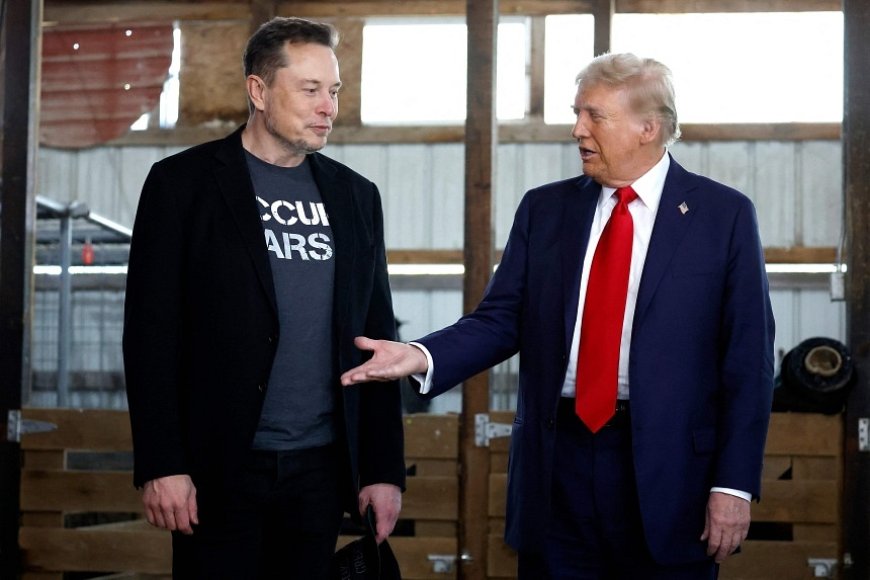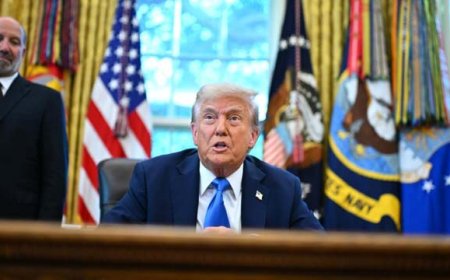Major Shift: Trump and Musk may reshape US space strategy
Outgoing President Joe Biden made climate change a top priority for NASA like never before.

Should NASA focus on returning to the Moon or head directly to Mars? Should it continue prioritizing climate science, or shift its attention elsewhere?
President-elect Donald Trump's second term, alongside SpaceX CEO Elon Musk, could represent a major turning point for the U.S. space program.
Both men are known for their disruptive approach and ambition to make history—traits that align well with space exploration.
"It's going to be a wild ride," said George Nield, president of Commercial Space Technologies, a consultancy for the private space industry. "People are tightening their seat belts and hoping for the best."
Trump’s interest in space is not new. During his first term, he famously established the Space Force and reinstated the National Space Council, chaired by the vice president. Most notably, he launched the Artemis program, aiming to land Americans on the Moon this decade as a stepping stone to Mars. However, even then, Trump expressed skepticism about the Moon's necessity.
“We want to reach Mars before the end of my term,” he declared during his 2024 campaign—an ambitious goal long supported by Musk.
“There’s a good chance we’ll see at least a re-look at the Artemis program—whether that means speeding it up or even skipping the Moon to focus on Mars,” said Nield, a former senior FAA official.
Such a shift would be significant for a program projected to cost over $90 billion.
The Artemis 2 crew is scheduled to fly by the Moon in September 2025, marking the first lunar mission since Apollo.
China's lunar ambitions may also influence any pivot. Beijing is targeting the lunar south pole—the same goal as Artemis—and Trump is unlikely to let China plant its flag there unchallenged.
Then, there’s the question of which rocket will power these missions.
NASA's newly certified Space Launch System (SLS) has faced strong criticism, particularly from Musk, for its high cost due to a lack of reusability. In contrast, SpaceX's Starship prototype, designed to be fully reusable, has impressed with its potential to revolutionize spaceflight.
Trump praised Starship during his election victory speech, highlighting SpaceX's success in catching the rocket's booster stage with the launch tower’s massive "chopstick" arms. Could Starship replace SLS? Many in the space sector believe it should.
However, Musk's growing influence raises concerns. Having contributed tens of millions to Trump’s campaign, Musk is now set to chair a group focused on reducing bureaucracy and improving “government efficiency,” which includes agencies overseeing SpaceX.
Critics worry Musk might use his position to influence environmental regulations—an issue that has long been contentious for Starship launches—or to sway NASA and Pentagon contract decisions.
SpaceX already holds lucrative contracts to ferry astronauts to the ISS, launch defense satellites, and provide internet via its Starlink network.
Trump said Musk's role is to "provide advice and guidance from outside the government," a phrasing that Kathleen Clark, a law professor at Washington University, finds troubling. She suggests the wording could blur the lines between government and private interests, potentially avoiding conflict of interest rules.
Musk’s commission might also recommend downsizing NASA’s extensive network of ten centers, a recurring idea often blocked by senators seeking to protect local jobs.
“That’s probably a good idea,” said Nield, though it could provoke strong opposition.
While space exploration has traditionally been politically neutral, Musk's involvement could spark backlash from Democrats. During Biden's presidency, climate change became a top priority for NASA, with initiatives like the Carbon Monitoring System (CMS) and the Plankton, Aerosol, Cloud, Ocean Ecosystem (PACE) satellite being revived.
Under Trump’s first term, NASA cut these programs and downplayed climate change in its strategy documents.
We will get clearer clues about Trump’s space agenda once he appoints a new NASA administrator. His first choice, Jim Bridenstine, was a loyal supporter in Congress.
What's Your Reaction?





















































































